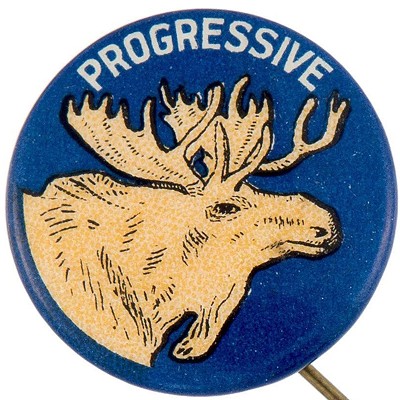by KEVIN TAYLOR & r & & r & & lt;span class= & quot;dropcap & quot; & B & lt;/span & randon Freitas, a 35-year-old Pullman resident, has experienced war in a fashion that would be the stuff of Tom Clancy novels to soldiers of previous generations.
The former Air Force captain, an energetic and cheerful talker, is forming a Palouse chapter of a new nationwide group for soldiers -- Veterans of Modern Warfare. Nothing against existing organizations that serve veterans, Freitas says, but there are significant new realities shared by modern soldiers.
In his own case, he was attached to the extremely high tech Combined Air Operations Center in Qatar. Even while his physical self was safe and stationary before a wall of computer consoles in a secret, air-conditioned communications bunker, Freitas was plugged into Iraq in real time through video and audio hookups.
Through his headset and monitors, a big chunk of his consciousness -- or his spirit, perhaps -- was in the heat and dust of Iraq as he worked search-and-rescue missions for all multinational forces under a pretty tough clock.
"To get a mission done to get those guys, you need to do things right in the first 20 minutes, or they are gone," Freitas says. He would plug in with rescue units, search planes or even downed pilots and crews.
"I would even see video of the choppers sometimes. I would see people running in the bushes and try to warn people, don't go there. Too late, there was an ambush." He struggles to find the word. "It was insurmountable almost that there was nothing I can do to help those guys."
Yet he could see them, hear them.
"I remember one where there were six guys in a chopper doing a routine survey -- for intel maybe -- and something went wrong and the chopper was going down. Nobody shot at it. And it went into a lake," Freitas says. "For three hours we were talking to these guys trying to make sure there was no enemy around. After the crash there was a truck that was heading their way. It was intense. Some guys were dead on impact, others died in the process. I was talking to the boss who was trying to help two guys in the water and there were three on top and the chopper was sinking," Freitas says.
"I remember those guys, but I never met them."
& lt;span class= & quot;dropcap & quot; & I & lt;/span & f this is the electronic battlefield of the future, Freitas already has been there. "I consider myself fairly unscarred. However... comma... there are scars. Not huge gashes, but they are there."
So is this part of the need for Veterans of Modern Warfare?
"Part of it is the technology. I fought my war from a computer and a headset talking to guys out in the field over here and talking to the NSA over there, doing all kinds of crazy stuff that... I didn't know we could even do that kind of stuff."
But VMW is more than high tech.
"Modern war -- IEDs," Freitas says. "Modern war -- TBI [traumatic brain injury]. Modern war -- urban. Modern war -- no flags. Modern war -- women in combat."
Even the soldier experience is different. Soldiers fighting in modern wars tend to be older than those in previous wars, already married and with children. They face multiple deployments into combat against an enemy that can be elusive. In a Global War on Terror, there are no munitions factories or railroad bridges to bomb and bring an enemy to its knees. If the enemy is poor people with AKs, counterinsurgency or police actions become nearly endless.
In the barrage of seminars and workshops and classes soldiers need to attend on their way to being discharged, one stood out for Freitas as he was leaving the Air Force in April -- the one for Veterans of Modern Warfare, at that time only a few months old.
"It was the only one where nobody loaded us down with business cards. The guy didn't even stick around," Freitas says. Yet it struck a chord, stayed with him. He checked it out.
With 40 percent of returning Iraq and Afghanistan vets diagnosed with post-traumatic stress disorder, Freitas saw a huge need for a group that could point vets in the direction of counseling and help, if they needed it; a safe place where someone could talk about issues the whole group understood, and the weight of an organization offering backup for veterans taking on bureaucracies over health care or benefits.
He has been publishing newsletters about the nascent VMW chapter for the last few months, recruiting around the UI and WSU campuses and is nearing the magic number of 10 members to start an official chapter.
"There has been a lot in the news about all the World War II vets dying," says Freitas. "For every one that dies, two veterans are coming back from Iraq -- 1.4 million vets have served from 1990 to now. Most are married. Most have families. Things change... This is the voice of the modern veteran. We need a voice for us."
To learn more, visit the national Website www.modernveterans.com. The organization is open to any veteran who served after August 2, 1990. Or e-mail Brandon Freitas at [email protected] about the local chapter.
Modern Wars, Modern Woes
[
{
"name": "Broadstreet - Instory",
"component": "25846487",
"insertPoint": "4",
"requiredCountToDisplay": "4"
},{
"name": "Broadstreet - Empower Local",
"component": "27852456",
"insertPoint": "8",
"requiredCountToDisplay": "8"
},{
"name": "Broadstreet - Instory",
"component": "25846487",
"insertPoint": "12",
"requiredCountToDisplay": "12"
},{
"name": "Broadstreet - Instory - 728x90 / 970x250",
"component": "27852677",
"insertPoint": "18",
"requiredCountToDisplay": "18"
},{
"name": "Broadstreet - Instory",
"component": "25846487",
"insertPoint": "5th",
"startingPoint": "23",
"requiredCountToDisplay": "24",
"maxInsertions": 100
}
]















